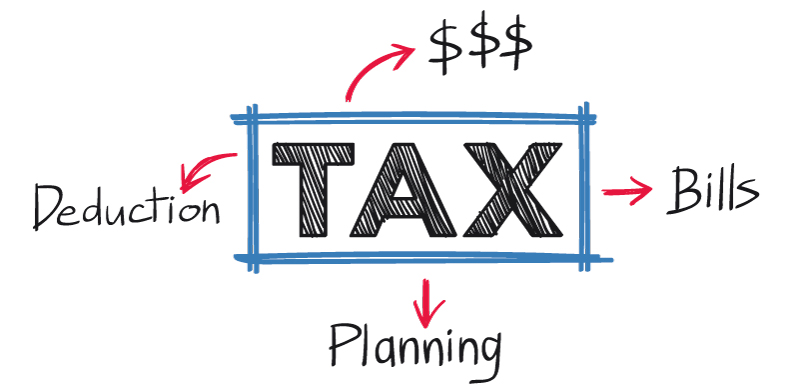Top 7 Tax Benefits of Real Estate Investments
Do you know that real estate is among the most famous investment plans to secure and grow your wealth? In fact, the real estate business is among the best ways to generate passive income. Apart from the benefits of generating monthly rental income, the real estate investment also offers great tax benefits.
However, it is not a surprise that their ideas are different. The former VP Joe Biden tax plan was to increase taxes for the top 1% Individual earners and corporations. The plan also offers several well-outlined tax breaks for moderate and lower-income families. The aim is to ease the financial difficulties resulting from the pandemic and encourage spending to assist restore the economy.
As an investor, you should use the various tax benefits of real estate investing, to keep more of your money.
Here are the top 7 best tax benefits of real estate investing:
1. Capital Gains
Capital gains are any profit that you make when you sell a real estate property. The real estate property comprises of industrial, commercial, rental, or residential property. You pay taxes for these profits at a lower tax rate in two ways. These are long-term or short-term capital gains.
- Long-term: Applies to profits that you make from properties owned for more than a year. Unlike the short-term gains, the long-term gains are more favorable to investors, as the tax rate is lower. The tax rate ranges from 0-20% based on your tax bracket.
- Short-term: Applies on gains made from properties owned a year or less. The short-term capital gains do not have unique tax treatment. Instead, you pay taxes based on your income bracket. The tax rate ranges from 10-37%.
As an investor, you should always go for long-term capital gains. The taxes are less, and you can apply the previous deductions to lower the taxable amount. To avoid paying capital gains, you should use specific tax-free or tax-deferred plans of real estate investing.

2. Depreciation
The IRS defines depreciation deduction as the allowance for wear and tear. Similar to other assets, the value of real estate depreciates over time. Therefore, the law allows you to claim depreciation on your investment property. All these involve yearly tax deductions to recover the cost of the income-generating property.
These factors decide how much the depreciation you can deduct every year:
- Depreciation method applied.
- The recovery duration of the property.
- The total worth of the property.

The depreciation method used by investors is the Modified Accelerated Cost Recovery System (MACRS). The depreciation for commercial property is 39 years, while that of residential property is 27.5 years.
For example:
If you have a $20,000 rental property, you can get your annual property depreciation by dividing the value by 27.5. The annual property depreciation is $7,273 each year. Therefore, your tax break is $7,273 each year.
Assuming the property makes $50,000 in rental income, while the recurring expenses are $20,000, you can calculate your tax owed.
Total expenses incurred= $7,273 +$20,000= $27,273.
Taxable income= $50,000-$27,273= $22,727.
Taxes owed with depreciation= $22,727 x 25 % = $5,682.
Taxes owed without depreciation= ($50,000-$20,000) x 25%= $7,500.
Taking advantage of the depreciation tax benefit will be saving you $1,818 each year.
Irrespective of your investment property producing positive cash flow, depreciation remains as its net loss. Since depreciation only applies to investment properties, it is a major tax benefit enjoyed by real estate investors.
Nonetheless, depreciation does not remain forever. Once you sell your property, there is a recapturing of the depreciation. In turn, there is regaining and taxing of the depreciated amount at the normal income tax rate of 25%.
3. Deductions
Among the main benefits of investing in real estate is the capacity to deduct specific expenses associated with rental properties. These include:
- Advertising costs.
- Property management fees.
- Capital enhancements, property repairs, or ongoing maintenance.
- Property tax.
- Mortgage interest.
- Property insurance.

Most real estate investors either own or invest in real estate that has an entity like a limited partnership (LP) or a limited liability company (LLC) for a reason. This opens up some extra tax deductions associated with the running of the investment business. For example:
- Travel costs, inclusive of your parking fees and vehicle mileage.
- Business equipment like phone, office desk, printer, or laptop.
- Marketing or advertising costs like a sign for your office, business cards, or off-market leads.
- Meals. Nevertheless, the meal should be with a current partner or client.
- Legal and professional fees like bookkeeper, attorney, or accountant.
- Education and memberships like a course on a topic related to your sector, or annual fees for a trade association.
You can deduct most of these property-associated costs at face value. However, others, such as capital improvements, depreciate within a certain duration. Most business deductions are a part of the price. For instance, 50% is the limit for deducting your meal cost.
To make sure you benefit from the tax savings available in real estate deductions, you should keep records of your expenses each month.
4. Passive income and pass-through deductions
The real estate investment is famous for its capacity to generate passive income in the form of rental income. The Internal Revenue Service (IRS) defines passive income in real estate as any money earned from a rental activity where you do not take part physically. Even so, it excludes any residual income you earn from a passive investment—for example, dividends from a mortgage note.

In 2018, there was an introduction to the Tax Cuts and Jobs Act. The aim was to enable businesses that earn qualified business income (QBI) to enjoy a pass-through deduction. This deduction is available up to 2025, and it reduces the income tax of profitable business by 20%.
5. Opportunity zones
A section of the Tax Cuts and Job Act of 2018 is the Opportunity zone funds. A tax incentive whose aim is to encourage the growth of more than 8,700 distresses and rural areas in the US. This tax incentive enables investors to put their qualified capital benefits into an opportunity zone fund. As a result, they pay no or defer capital gains tax of their investment based on the time of the investment in the fund.
Since this program is new, there is a regular adjustment of the rules and requirements. It is advisable for you to keep a check on the changes.
6. Tax-free or tax-deferred retirement accounts
Some special savings accounts enable you to invest in assets such as tax-deferred, tax-free, or real estate. These saving accounts include individual retirement accounts (IRA), or health savings account (HSA).
Specific accounts have annual contribution limits and restrictions on the kind of investments to make. You should do some earlier research before investment. Overall, this type of investment is a good means of avoiding taxes while investing in real estate.
7. 1031 Exchange
As the name suggests, the 1031 exchange is a legal transaction, which enables real estate investors to swap a real estate property for another. This allows investors to avoid depreciation recapture or capital gains tax when they sell their property.
The 1031 exchange got its name after Section 1031 of the Internal Revenue Code. Most investment swaps receive taxation as sales. On the contrary, a 1031 Exchange has limited or no tax during the exchange. This means an investor can transfer capital gains from one real estate investment to another, thus avoiding taxes until you sell the property next year.

Here are the criteria that an investment property must meet to complete a 1031 exchange:
- All properties involved must exchange with some kind of assets like real estate investment trust.
- The value of the property you intend to replace must equal to or greater than the value of the resigned property.
- The exchanged property must stay in business or trade for productive reasons.
Conclusion
The real estate business is among the investments with the most tax benefits. Apart from tax benefits, investing in real estate comes with other benefits as well, such as leveraging your investment, equity build-up, and appreciation. Most investors are unaware of these tax breaks and how to gain from them. Thus, you should understand the tax benefits of real estate investing at your disposal to accumulate long-term wealth. In this business, it is not how much you are making but keep after expenses. All the above real estate tax benefits will protect you from avoidable fees.
However, many financial service firms do not provide specified services to small businesses or individuals, but at United Business Owners Solutions we make sure to work closely with you to offer you all our services in the best possible manner. So, if you are looking for an assistance related to tax filing, tax planning or investments, do get in touch with us. We assure you that we won’t disappoint you.


Your Comment
Leave a Reply Now